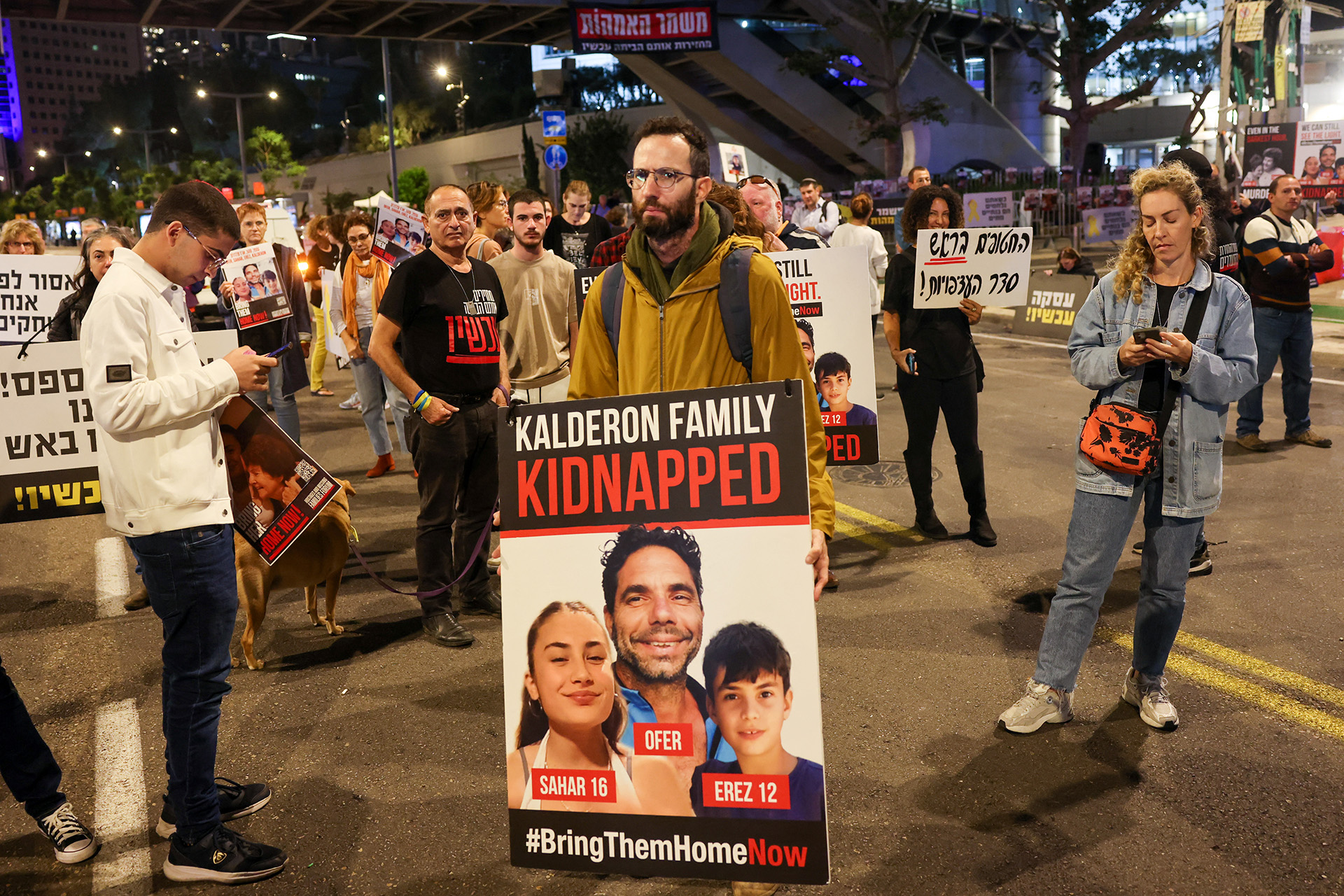Families of detainees in Gaza have been pressuring the government for weeks to release them (French)
Israeli Channel 13 quoted an Israeli official as saying that Tel Aviv has not yet received a response from the Islamic Resistance Movement (Hamas) regarding the possible prisoner exchange deal between the two parties, and that it expects a response from Qatar within the coming hours.
The features of the agreement were formulated last weekend during a meeting in Paris attended by CIA Director William Burns and officials from Egypt, Israel and Qatar.
The head of Hamas's political bureau, Ismail Haniyeh, announced last Tuesday that the movement had received the deal proposal that was circulated within the framework of efforts to stop the war on Gaza, and that it was studying it.
Israeli Channel 13 reported that there was optimism about the possibility of moving the deal forward, although the announcement that it would begin early next week was premature, according to the Israeli official.
Haniyeh in Egypt
This comes as Haniyeh arrives in Egypt today, Thursday, to discuss the new armistice agreement, and US Secretary of State Anthony Blinken will return “in the coming days” to the region, an American official announced without specifying the countries he will visit.
According to a source in Hamas, the movement is studying a proposal consisting of three stages, the first of which specifically stipulates a truce lasting six weeks during which Israel must release between 200 and 300 Palestinian prisoners, in exchange for 35 to 40 Israeli detainees, in addition to admitting 200 to 300. Humanitarian aid truck to Gaza daily.
The movement demands a complete ceasefire as a precondition for any agreement, while the Israeli government talks about a truce in the battles, refusing to stop its operation in Gaza.
Netanyahu: Efforts are continuing to reach a new deal, but not at any price (French)
Israel's security
On the other hand, Israeli Channel 12 said that Israeli Prime Minister Benjamin Netanyahu informed the families of the prisoners that he would approve a deal that would not harm Israel’s security, even if it led to the collapse of his government.
The channel confirmed that the initiative discussed in the Paris meeting stipulates a day of calm, in exchange for the release of every Israeli prisoner, followed by a week during which negotiations will take place on the next stage.
Israeli media also said that the Israeli side is considering the release of elite prisoners who were arrested during the war during the first phase of the exchange deal.
The channel reported that Mossad chief David Barnea revealed to the Israeli War Council a “document of principles” for the deal, which includes in the first phase the release of 35 Israeli detainees in the Gaza Strip, including women, the wounded, and the elderly, in exchange for a truce for 35 days.
She added, "It is possible after that to extend the calm for an additional week, in order to conduct negotiations on the possibility of completing the second phase of the deal, which includes the release of the youth, and all those whom Hamas describes as soldiers."
The channel saw that "the essence of the disagreement on the Israeli side is not necessarily the number of security prisoners (Palestinian prisoners) that Israel will be forced to release from prisons, but rather their quality."
Red lines
Netanyahu confirmed that efforts are continuing to reach a new prisoner exchange deal, but indicated that it will not be done “at any price,” adding - in a video clip he published yesterday, Wednesday - that he has red lines, including: not stopping the war, and not withdrawing army forces. from the Gaza Strip, and not releasing thousands of Palestinian prisoners.
Netanyahu continued, "We are working to release our kidnappers, eliminate Hamas, and ensure that Gaza no longer poses a threat. We are working to achieve all three goals together, and we will not abandon any of them."
Commenting on this position, the Israeli Broadcasting Corporation quoted officials involved in the prisoner exchange negotiations, saying that Netanyahu’s statements were “harmful” and that he might seek to “fail the deal.”
An Israeli official familiar with the progress of the negotiations also expressed his fears that Netanyahu would push Hamas to “blow up the deal.”
Haaretz newspaper quoted the unnamed official as saying that there are fears "that the aim of the extremism in Netanyahu's statements in recent days is to encourage Hamas to harden its positions and torpedo the deal."
He added, "Such a step may allow Israel to continue fighting, while holding Hamas responsible for the failure of the talks."
Source: Al Jazeera + agencies

